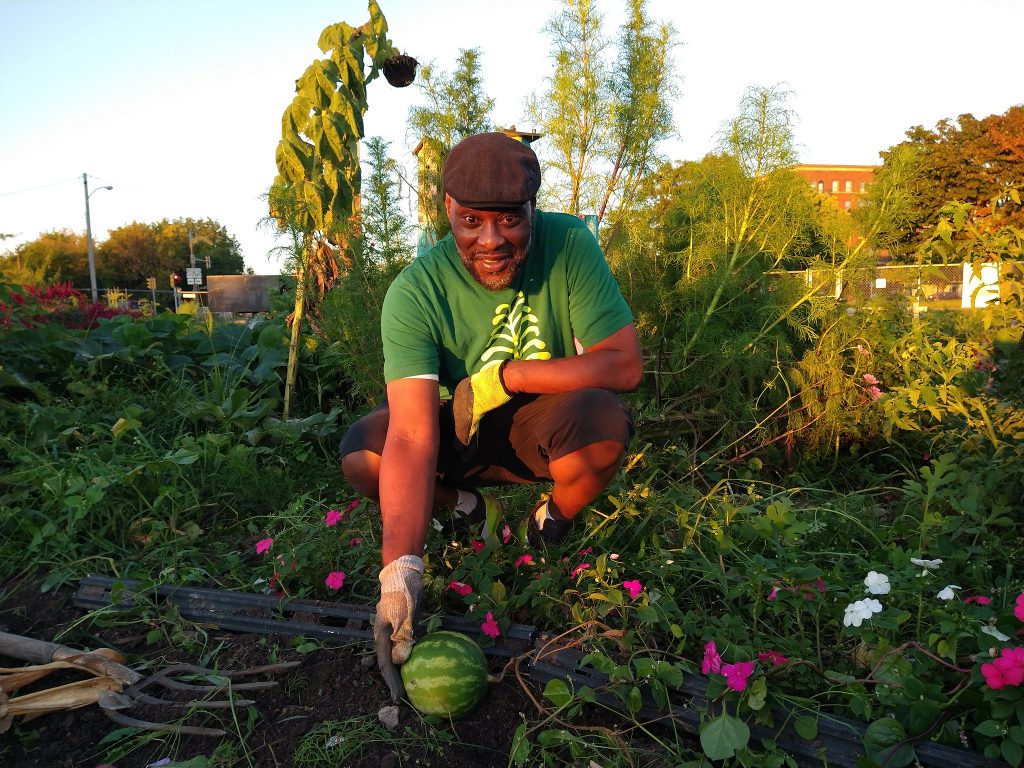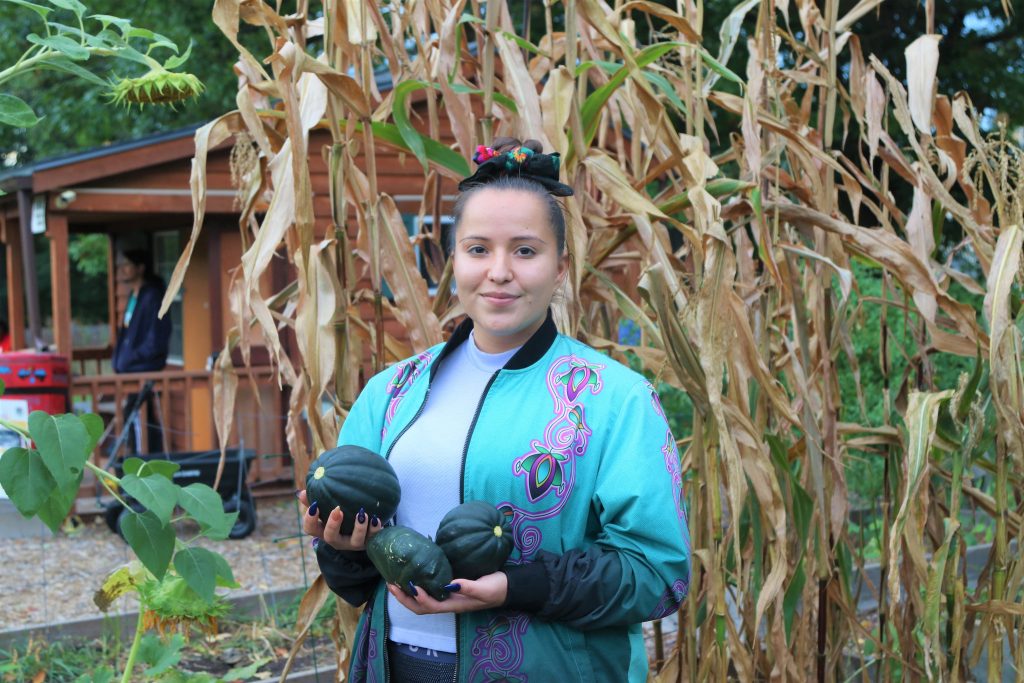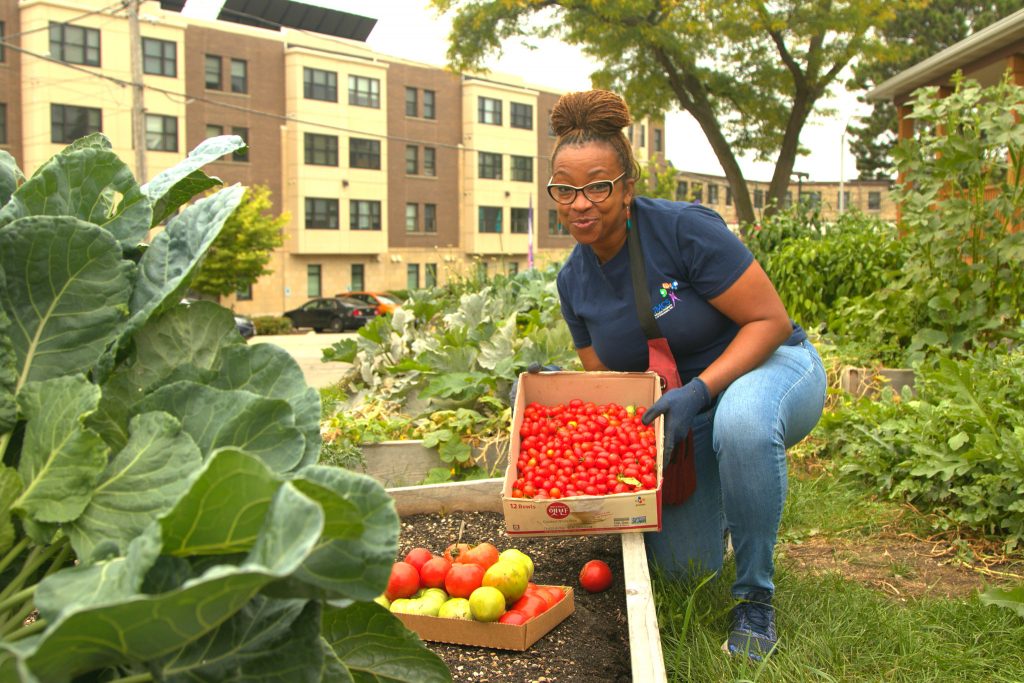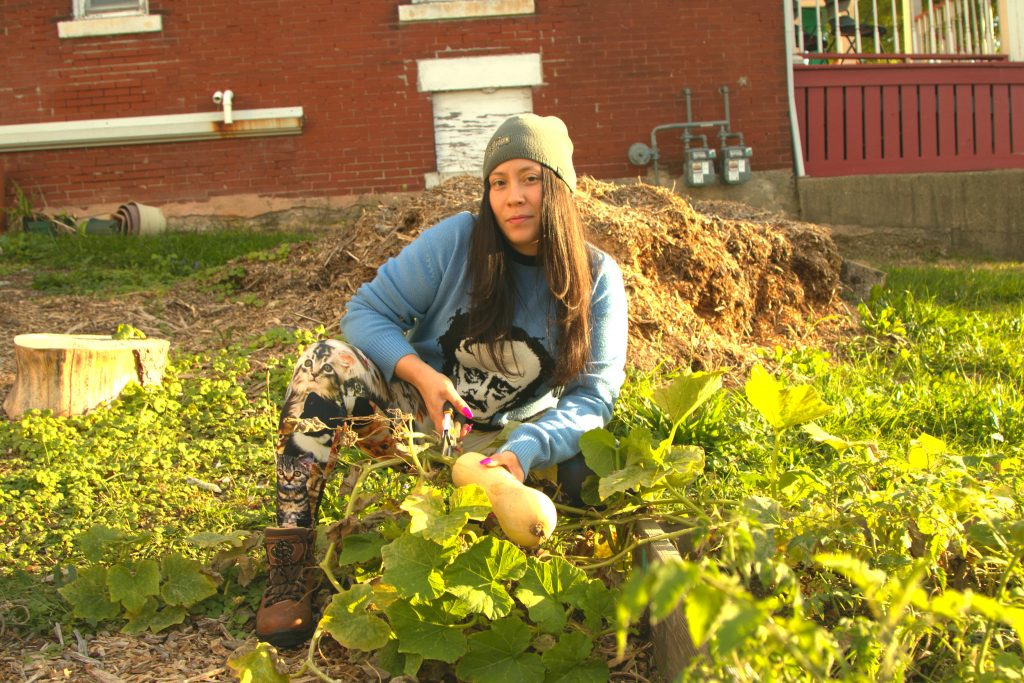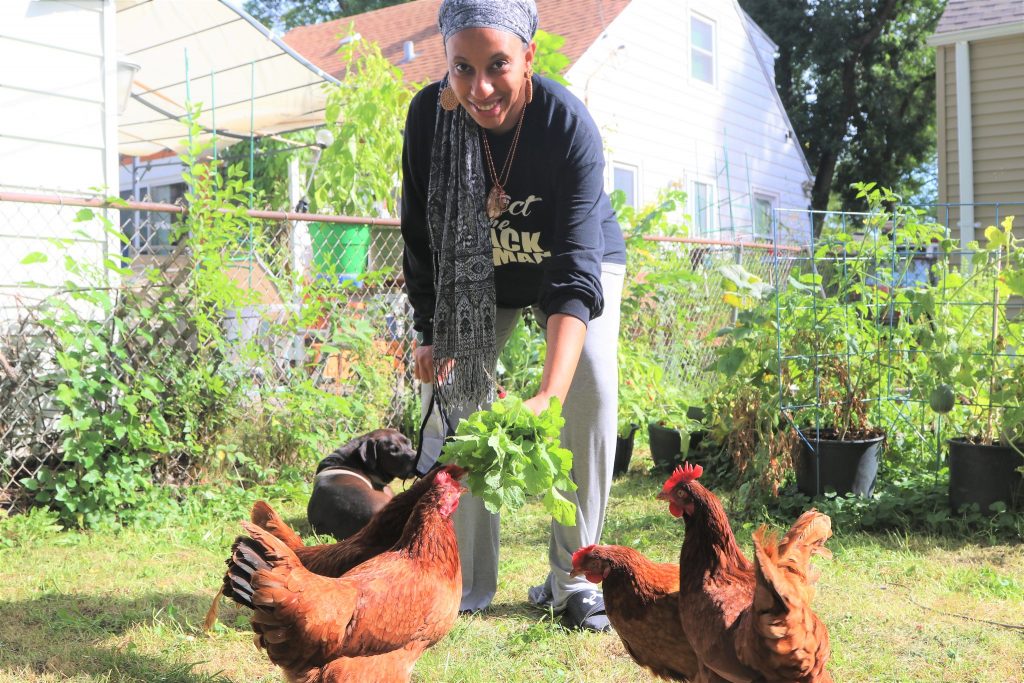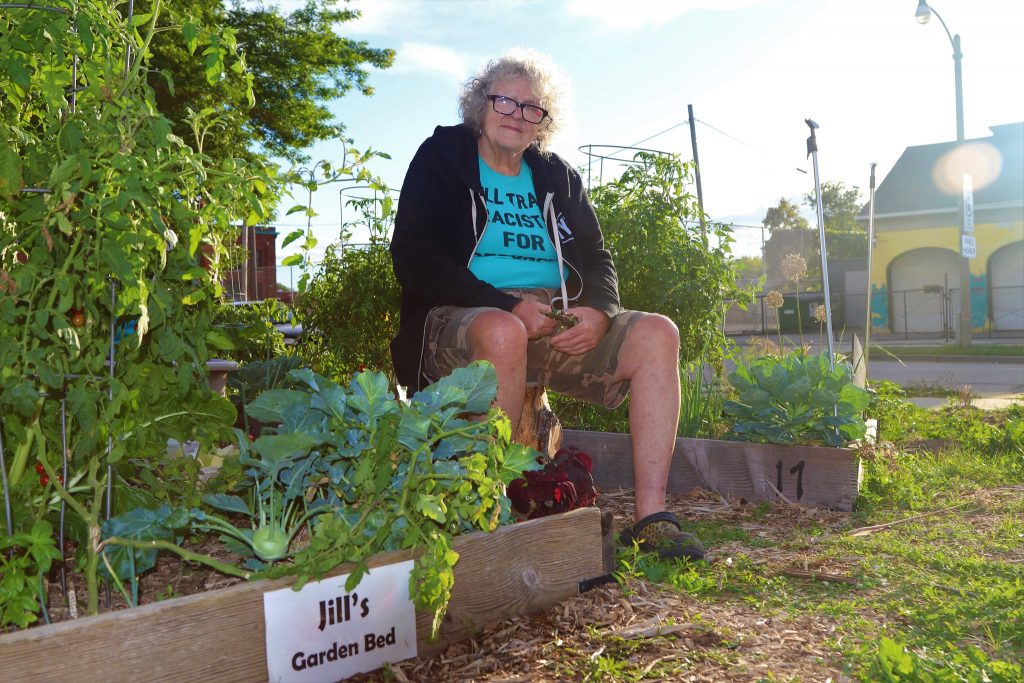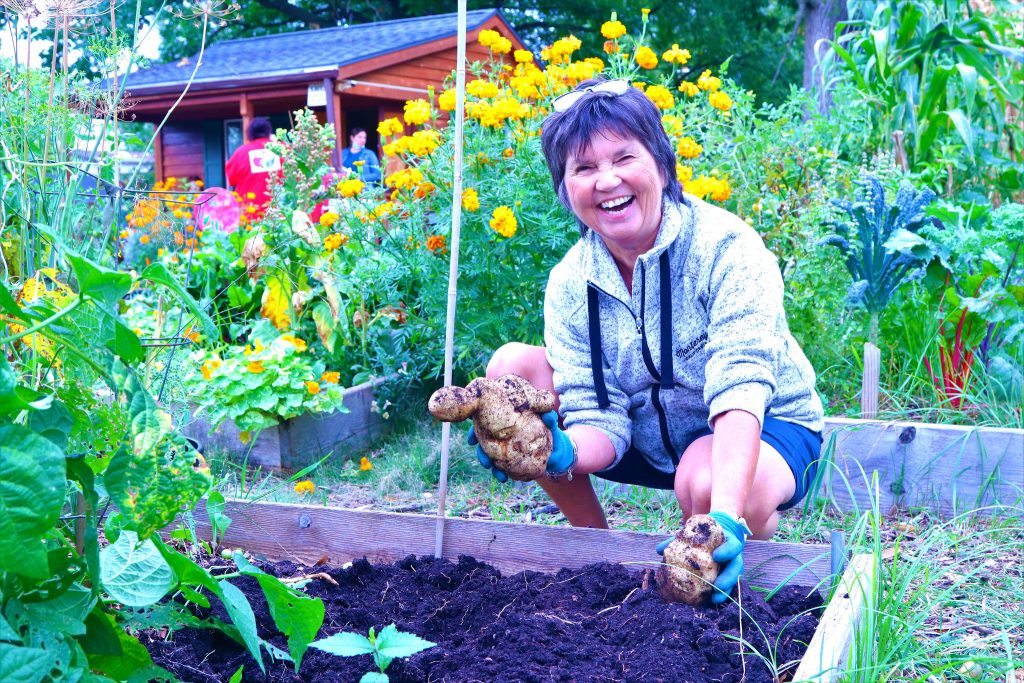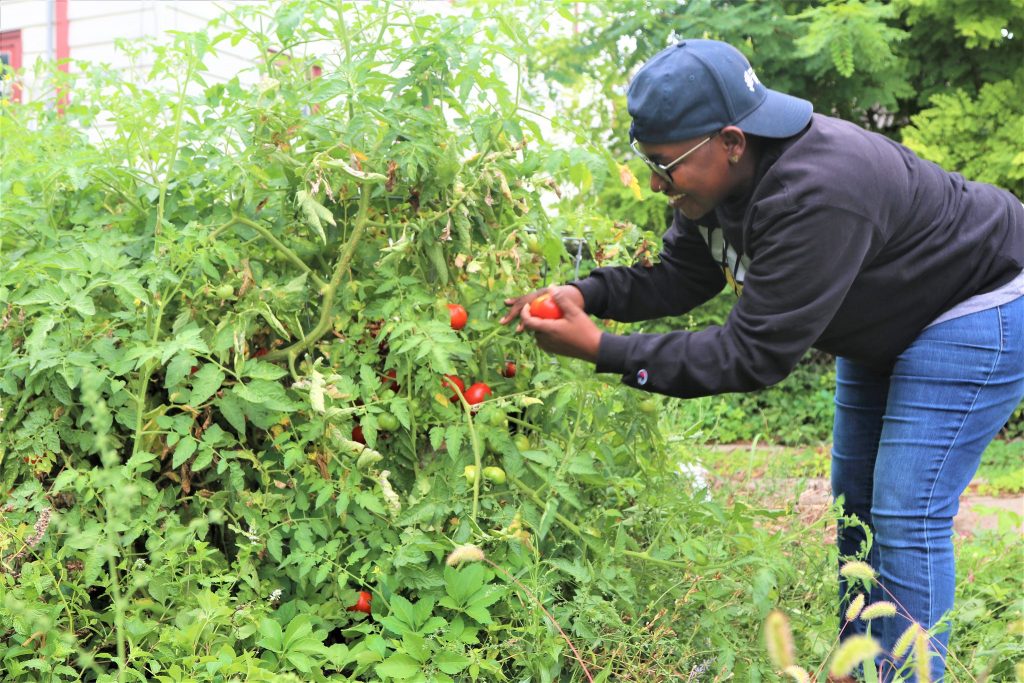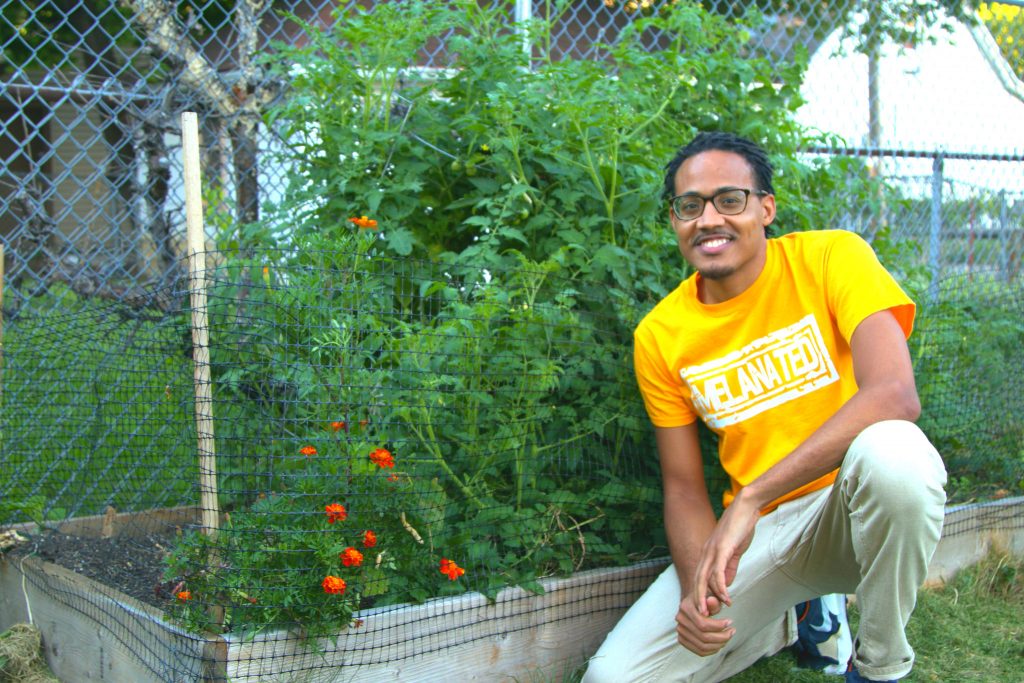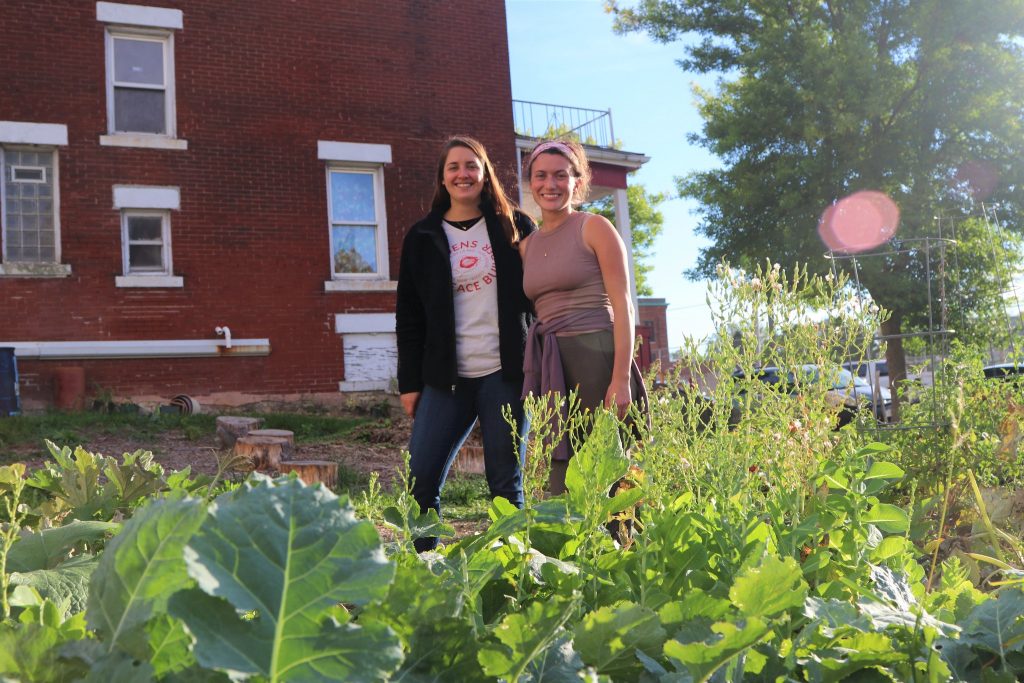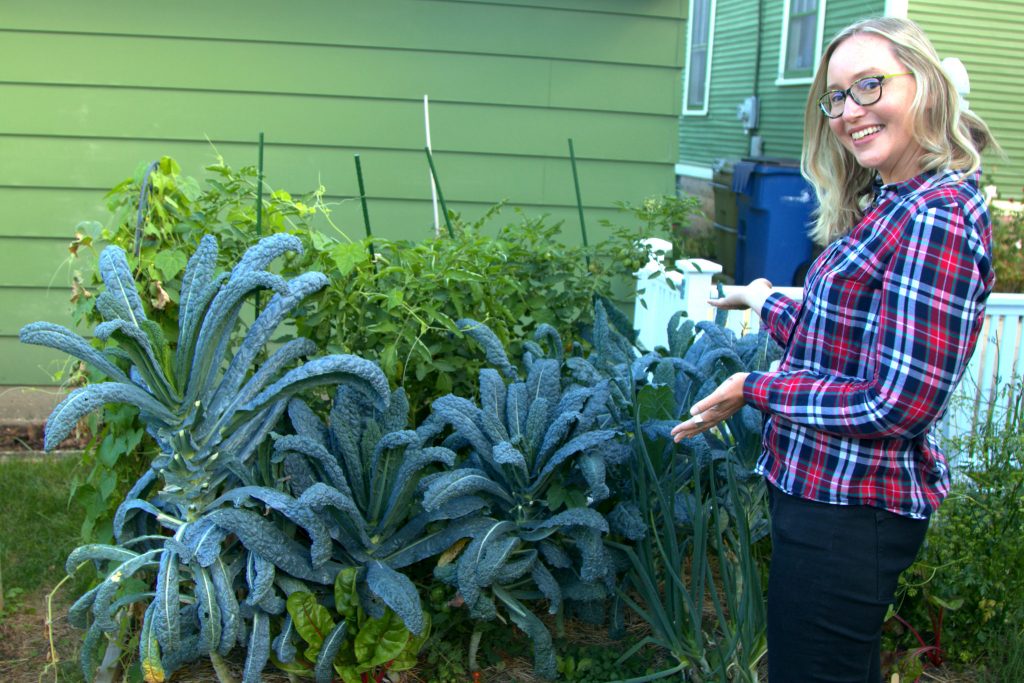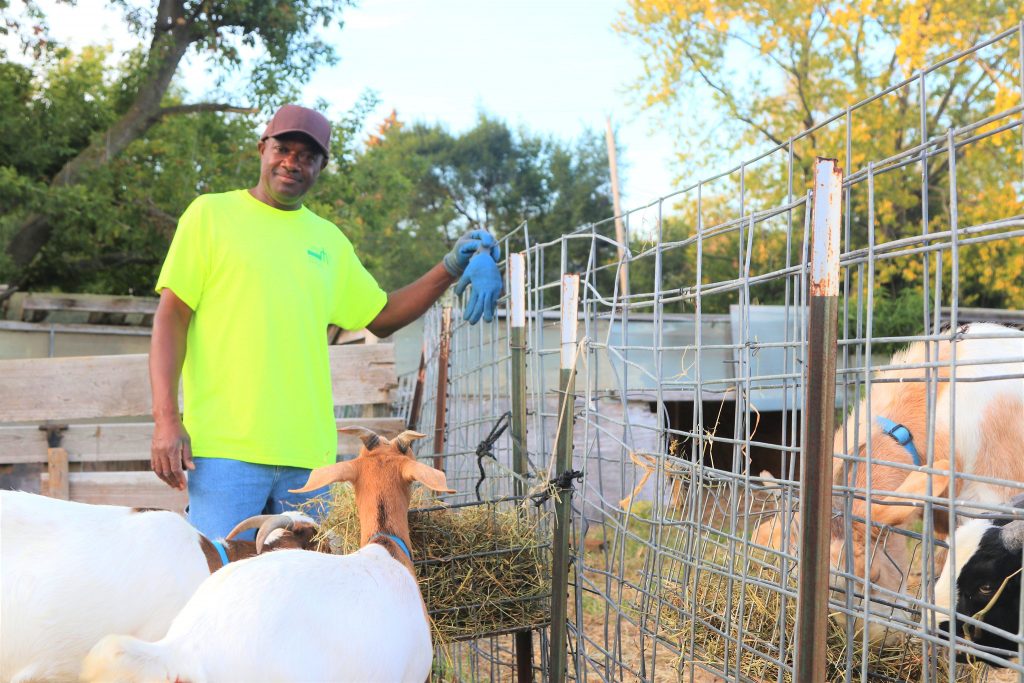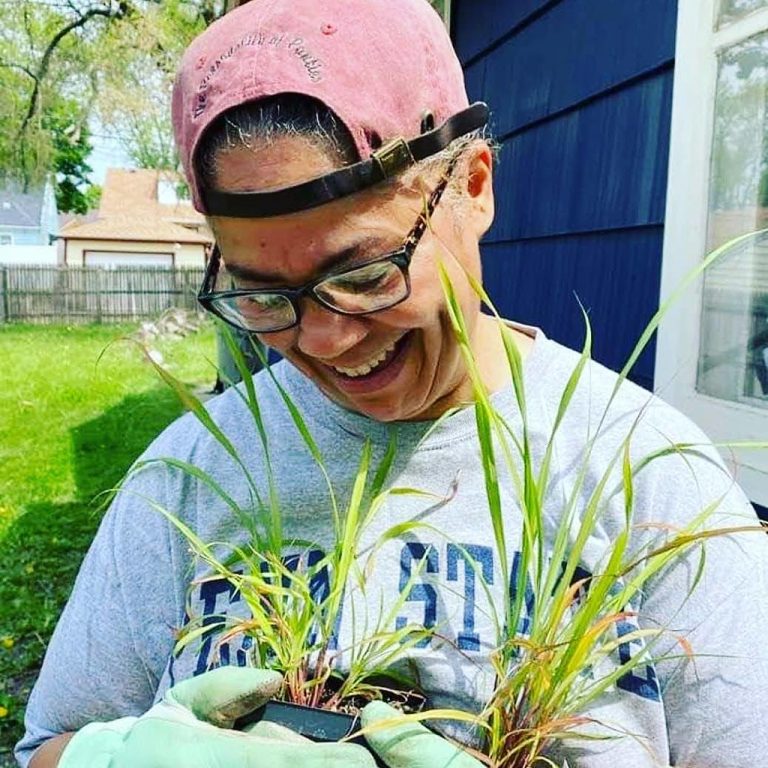Meet 14 Urban Farmers
14 Milwaukee residents growing a rich variety of crops.
Sure, Milwaukee is a city of concrete.
But if you look closer, you also will find a vibrant urban farming community. Milwaukee’s urban farmers grow vegetables, raise goats and chickens and sometimes run businesses.
Some just started this year, and some have been farming all their lives. All of them have advice for beginners: Start small. Talk to someone who’s grown before. And embrace failure.
‘It gives me peace of mind’
Eugene Bivens has been gardening for 10 years and has been at Alice’s Garden Urban Farm, 2136 N. 21st St., for six. He initially got started because he had high blood pressure and wanted a cost-effective way of getting fresh vegetables. He no longer has high blood pressure but continues to garden, giving excess produce away to other tenants in his apartment building.
“I’ll be doing this for a lifetime,” Bivens said. “It gives me peace of mind.”
‘Help revive ancestral foods’
Shaina Snyder, who is Diné and Southern Ute and an enrolled member of the Navajo nation, learned about the Native Wellness Garden while getting vaccinated at the Gerald L. Ignace Indian Health Center. This year, she planted the Three Sisters: corn, beans, and squash. Her advice for new gardeners is just to start because there is a wealth of knowledge out there from other gardeners as well as the plants themselves.
If you are Indigenous, connect to the Indigenous Seed Keepers Network and get seeds mailed to you, Snyder said. “Then you can contribute to the rematriation of the seeds and help revive ancestral foods.”
‘This garden is my front porch’
This is Shantel Hendricks’ second year gardening, both at her home and at the United Methodist Children’s Services Community Garden in the Washington Park neighborhood that she manages. Gardening has introduced her to new foods she loves like arugula, and Hendricks said it’s like having a front porch with free food.
“People used to sit on their front porch to talk to their neighbors, bring food, strike up a conversation,” Hendricks said. “This garden is my front porch. It’s a gathering space with food.”
‘You really just need enthusiasm’
Claribel Morales got started gardening in the summer of 2018. She used to live down the block when the space that would become Bumblebee Haven Community Garden was in neglect. She worked with community members to transform it into the garden it is today.
She offers this advice to new gardeners:
“You really just need enthusiasm. At the end of the day, this is just trial and error.”
‘Everything we eat on a regular basis is here’
Crystal Ayad and her husband, Andar Muhammad, have been gardening for a few years, but in June 2020 they added four chickens to their “mini urban farm” in the Wahl Park neighborhood. For Ayad and Muhammad, gardening and raising chickens doubles as both a convenient way of avoiding trips to the grocery store as well as a fostering a deeper connection to the land and their historical roots.
“I know how everything is grown back here. I know I didn’t use any pesticides, I know I didn’t spend gas money to get to the store for a few things. Everything we eat on a regular basis is here,” Ayad said.
‘Helping people and the environment’
Jill Madigan has been gardening since she was 5 years old. She sees it as a way of donating to the community and as a space where people can eat her crops and the soil can be enriched for future generations.
“I love to know that I am doing something that is helping people and the environment,” she said.
‘I got to connect with people’
Deb Ushakow, who is of the Oneida Nation of Wisconsin, asked for a garden plot at Native Wellness Garden after retiring. She said she has gone up to the Oneida reservation during harvest time to learn more about what she can grow. This year, she grew vegetables ranging from potatoes to green beans to cucumbers. For new gardeners, she suggests connecting with more experienced gardeners.
“Find somebody that has already gardened before to learn from them. I learned quite a bit when I went up [to the Oneida reservation] because I got to connect with people.”
‘It helps show I’m a good neighbor’
Rae Johnson recently bought their house through ACTS Housing in the Borchert Field neighborhood. One of the first things they did was call Victory Garden Initiative to install a garden bed in their backyard. This fall Johnson harvested crops, including tomatoes and chard. What they enjoyed most about gardening was that it gave them an opportunity to bond with their neighbors.
“It’s a place to start having a conversation with people,” Johnson said. “It helps show I’m a good neighbor and will take care of my property, but it’s also a conversation starter to help build interpersonal connections.”
‘Gardening can be for everyone’
Jovan Goldsmith is a first-time gardener this year who got started because he wanted to better understand plants as well as eat some fresh food that he grew. Goldsmith described gardening as “liberating,” based on the knowledge that in a small way he was able to provide for himself, his friends and his family. He said beginner gardeners should take classes with Victory Garden Initiative to learn more but also that the process of growing your own food teaches you more about yourself than you might expect.
“Gardening can be for everyone,” he said. “You get a lot out of it besides just the food.”
‘Here for the laughs’
Amalie Hansen and Sophia Torrijos
Sophia Torrijos (left) and Amalie Hansen have been volunteer gardeners at the Bumblebee Haven, located at 1459 W. Historic Mitchell St, for three years. This year, the two harvested carrots, beets, zucchini, butter lettuce and more. While they love seeing their garden through from seed to harvest, both highlighted that it’s the gardening community they’ve found at Bumblebee Haven that keeps them coming back.
“I’m just here for the laughs,” Torrijos said.
‘Just start with a pot or two and some seeds’
Mary Hoeschen has been gardening all her life, but this year she tried growing kale, oregano and cucamelons for the first time. Between her two backyard garden beds and some additional pots, she also grew a bunch of other crops including chard, tomatoes, basil, parsley, and tomatillos. For new gardeners, Hoeschen recommends starting small if you’re worried about whether you have time or talent to keep up with a garden.
“It doesn’t have to be something huge, just start with a pot or two and some seeds.”
‘Learn more about where your food comes from’
James Johnson started raising goats in Milwaukee this year but has been around goats for most of his life. Johnson grew up in Jamaica and raised goats on his farm until moving to Milwaukee. Johnson said a flood of memories from his childhood have come back this year as he’s reconnected with raising animals, and that he hopes young Black children growing up in Milwaukee have similar opportunities to connect to the land.
“I hope some of the wasteland in the city that’s just sitting there . . . they should let people get a start in farming,” Johnson said.
“It doesn’t have to be goats. Start with chickens, sheep, or just vegetables and learn more about where your food comes from.”
‘Enjoy what you are doing’
Angela “That Salsa Lady” Moragne
Angela Moragne founded her gourmet salsa company, That Salsa Lady, over a decade ago, but she has been farming ever since she started working on an urban garden for a housing development years before. While there, she connected with the generational farmer who mentored her for a couple years before she felt comfortable setting out on her own. Now she owns a successful salsa company made with ingredients that she grows in her half-acre garden known as “That Hood Ranch.”
For new gardeners, Moragne advised practicing patience and accepting mistakes as learning opportunities.
“Most of all, enjoy what you are doing. Do not just celebrate the harvests but also appreciate the ‘failures.’ It is gonna happen, so push past the ‘UGH,’ learn from mishaps and use each as a learning curb. Then share your experiences with others,” Moragne said.
A harvest of riches: Meet some of Milwaukee’s finest urban farmers was originally published by the Milwaukee Neighborhood News Service.


